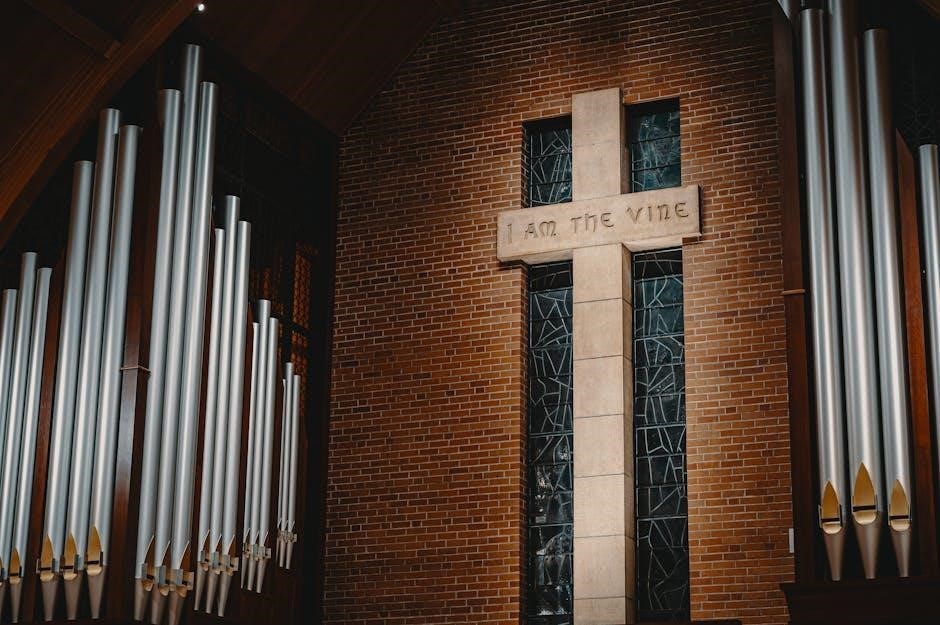i am joaquin poem pdf

Rodolfo “Corky” Gonzales’ 1967 poem, I Am Joaquin, explores the identity struggles and cultural heritage of Mexican Americans through its narrator, Joaquin. It reflects the Chicano Movement’s spirit, blending history, resistance, and self-determination, becoming a cornerstone of Chicano literature and activism.
Overview of the Poem and Its Significance
I Am Joaquin, written by Rodolfo “Corky” Gonzales in 1967, is a poignant elegy that captures the identity struggles, cultural heritage, and resilience of Mexican Americans. The poem, delivered through the voice of Joaquin, reflects the Chicano experience, blending historical reflections with a call for resistance and self-determination. It became a symbol of the Chicano Movement, offering a powerful narrative of pride, oppression, and hope. The poem’s vivid imagery and emotional depth have made it a cornerstone of Chicano literature and identity.
Historical Context of the Chicano Movement
The Chicano Movement emerged in the 1960s, addressing issues of racial discrimination, land rights, and cultural identity. It sought to empower Mexican Americans, emphasizing pride in their heritage. Rodolfo “Corky” Gonzales’ I Am Joaquin, written in 1967, became a rallying cry for the movement. The poem reflects the struggles of Chicanos, from the Spanish conquest to modern-day oppression, resonating deeply with those seeking social justice and cultural preservation. This historical context underscores the poem’s significance as both a literary work and a political statement.

Author Background
Rodolfo “Corky” Gonzales (1928–2005) was a Chicano activist, boxer, and poet. His seminal work, I Am Joaquin, became a symbol of Chicano identity and resistance.
Rodolfo “Corky” Gonzales: Biography and Contributions
Rodolfo “Corky” Gonzales (1928–2005) was a pivotal figure in the Chicano Movement, known as a poet, activist, and former boxer. Born in Denver, Colorado, he became a leader in the fight for Chicano civil rights, co-founding the Crusade for Justice. His poem I Am Joaquin (1967) is a landmark of Chicano literature, capturing the struggles and pride of Mexican Americans. Gonzales’ contributions extended beyond poetry; he was a tireless advocate for education, justice, and cultural empowerment, leaving a lasting legacy in both literature and activism.
Gonzales’ Role in the Chicano Civil Rights Movement
Rodolfo “Corky” Gonzales played a central role in the Chicano Civil Rights Movement of the 1960s and 1970s. He co-founded the Crusade for Justice, a Denver-based organization advocating for Chicano rights. Gonzales’ leadership extended to national efforts, galvanizing communities through activism and poetry. His poem I Am Joaquin became a rallying cry, encapsulating the struggles and aspirations of Mexican Americans. Gonzales’ work emphasized self-determination, cultural pride, and resistance against oppression, making him a symbol of Chicano identity and resilience.

Key Themes in the Poem
The poem explores identity struggles, cultural heritage, and resistance. It reflects the Chicano experience, blending history and self-determination, while addressing societal oppression and the fight for justice.
Identity Struggles of Mexican Americans
The poem vividly portrays the identity struggles of Mexican Americans, reflecting their search for self-definition amidst cultural confusion. Joaquin embodies the tension between Aztec heritage and Spanish colonialism, symbolizing the internal conflict of Chicanos. The narrator grapples with a fragmented identity, torn between pride in indigenous roots and the imposition of European values. This struggle resonates with the broader Chicano experience, as individuals navigate the complexities of cultural hybridity and societal expectations. The poem gives voice to these challenges, emphasizing the enduring quest for self-acceptance and pride in one’s mixed heritage.
Cultural Heritage and Historical Reflections
I Am Joaquin delves into the rich cultural heritage of Mexican Americans, tracing history from Aztec civilization to Spanish conquest. The poem reflects on key events like the Mexican Revolution, blending personal and collective memories. Joaquin’s journey mirrors the Chicano experience, celebrating indigenous roots while critiquing colonial oppression. Through vivid imagery and historical references, Gonzales weaves a tapestry of pride and resilience, connecting past struggles to present identity. This historical reflection underscores the enduring legacy of Mexican heritage in shaping Chicano consciousness and cultural pride.
Resistance and Self-Determination
I Am Joaquin embodies the spirit of resistance and self-determination, reflecting the Chicano struggle for identity and justice. Joaquin, as a symbol of resilience, navigates the duality of Mexican and American heritage while rejecting colonial oppression. The poem highlights the fight against systemic inequality, emphasizing pride in indigenous roots and the rejection of cultural erasure. Through its powerful imagery, Gonzales calls for collective empowerment, urging Chicanos to reclaim their history and forge a united future, embodying the essence of resistance and self-determination central to the Chicano Movement.

Historical References in the Poem
I Am Joaquin weaves historical events like the Spanish Conquest, Mexican Revolution, and modern Chicano struggles, tracing Joaquin’s journey through time, reflecting collective resilience and identity.
Spanish Conquest and Colonialism
In I Am Joaquin, Gonzales portrays the Spanish Conquest as a pivotal event, shaping the identity of Mexican Americans. The poem reflects the loss of land, culture, and sovereignty under colonial rule. Joaquin embodies the resilience of indigenous and mestizo peoples, enduring exploitation while preserving their heritage. The Conquest is depicted as a contradictory legacy, blending pride in Aztec roots with the trauma of subjugation, forming the foundation of Chicano identity and resistance.
Mexican Revolution and Its Impact
Gonzales’ poem highlights the Mexican Revolution as a symbol of hope and struggle for Chicano identity. Joaquin identifies with both the oppressed and the oppressors, like Díaz and Huerta, reflecting the Revolution’s complexities. The poem underscores the Revolution’s failure to deliver justice, leaving Chicanos in a state of cultural and political limbo. This historical event becomes a metaphor for the ongoing fight for self-determination and the quest for a unified Chicano identity.
Modern Struggles of Chicanos
In “I Am Joaquin,” Gonzales portrays the modern struggles of Chicanos through Joaquin’s identity crisis and cultural duality. The poem reflects the tension of living between Spanish and American worlds, highlighting discrimination and societal marginalization. Joaquin’s journey mirrors the Chicano experience, emphasizing resilience amid oppression. The poem also addresses the struggle for civil rights and self-determination, resonating with contemporary issues of racial justice and identity. Gonzales’ work underscores the ongoing fight for equality and cultural pride in a society grappling with diversity and inclusion.

Structure and Style of the Poem
The poem employs a first-person narrative voice, blending Spanish and English, with vivid imagery and symbolism to convey cultural identity and historical reflection, creating a powerful emotional resonance.
Narrative Voice and First-Person Perspective
The poem’s first-person narrative voice, through Joaquin, embodies the collective Chicano experience, creating a deeply personal yet universal connection. This perspective allows readers to witness historical events and identity struggles firsthand, fostering empathy and understanding. By using “I,” Gonzales bridges individual and communal experiences, making the narrator both a symbol and a reflection of the broader Chicano community. This literary choice enhances the emotional impact, making the poem a powerful tool for exploring identity, culture, and resilience.
Use of Symbolism and Imagery
Gonzales employs vivid symbolism and imagery to convey the complexities of Chicano identity and history. Symbols like the Aztec eagle and serpent represent cultural pride and resilience, while images of blood and fire evoke struggles and passion. The land itself is a symbol of heritage and displacement. These elements create a rich tapestry, allowing readers to visually connect with Joaquin’s journey of self-discovery and cultural affirmation, making the poem both emotionally and intellectually impactful.
Blend of Spanish and English Language Elements
Gonzales seamlessly blends Spanish and English, reflecting the duality of Chicano identity. Spanish phrases, like “Yo soy Joaquín,” add cultural authenticity, while English narration bridges cultural divides. This linguistic mix mirrors the narrator’s internal conflict and fusion of heritage. The bilingual approach enhances the poem’s emotional depth, making it accessible and resonant for diverse readers, while celebrating the richness of Chicano culture and language.
Impact of “I Am Joaquin”
The poem became a cornerstone of the Chicano Movement, inspiring pride and self-determination. Its powerful message resonated deeply, shaping Mexican American identity and civil rights activism.
Role in the Chicano Cultural Movement
I Am Joaquin became a rallying cry for the Chicano Movement, empowering Mexican Americans to embrace their heritage. Its vivid portrayal of identity struggles and historical reflections resonated deeply, unifying the community. The poem’s themes of resistance and self-determination inspired cultural pride and activism, making it a cornerstone of Chicano identity. Its influence extended beyond literature, sparking artistic and political expressions that continue to shape the movement’s legacy; Gonzales’ work remains a powerful symbol of cultural empowerment and resilience.
Influence on Mexican American Identity
I Am Joaquin profoundly shaped Mexican American identity by affirming cultural heritage and addressing internal conflicts. The poem’s exploration of historical struggles and resilience fostered a sense of pride and unity among Chicanos. It validated their experiences, bridging the gap between their Indigenous roots and contemporary challenges. By articulating complex emotions, Gonzales’ work helped individuals reconcile their dual identities, fostering self-acceptance and empowerment. The poem remains a pivotal text in defining and celebrating Mexican American identity, inspiring future generations to embrace their legacy. Its impact continues to resonate deeply.
Reception and Legacy of the Poem
I Am Joaquin received widespread acclaim as a cornerstone of Chicano literature. Its powerful narrative resonated deeply, becoming a symbol of cultural pride and resistance. The poem’s legacy endures as a foundational text in Chicano studies, inspiring activism and artistic adaptations. Its vivid imagery and historical depth have made it a timeless work, celebrated in film, performance, and education. Gonzales’ words continue to empower new generations, solidifying the poem’s role as a cultural and literary landmark. Its influence remains unparalleled in capturing the Chicano experience.

Availability and Access
The poem I Am Joaquin is widely available as a downloadable PDF, making it easily accessible for educational and cultural purposes. Its digital format ensures broad reach.
Publication and Distribution of the Poem
I Am Joaquin was first published in 1967, gaining immediate recognition within the Chicano Movement. Its distribution was facilitated through activist networks and cultural organizations, ensuring its reach among Mexican American communities. The poem’s widespread circulation was further enhanced by its inclusion in various anthologies and educational materials. Today, it remains a seminal work in Chicano literature, accessible through numerous print and digital platforms, including downloadable PDF versions that continue to promote its message of identity and resilience.
Downloadable PDF Versions and Resources
Downloadable PDF versions of I Am Joaquin are widely available online, providing easy access to the poem for educational and personal use. These resources often include annotations, study guides, and historical context to enhance understanding. Many academic platforms and cultural websites offer free or low-cost PDF downloads, making the poem accessible to a broad audience. These digital versions are particularly valued for their convenience and role in preserving the poem’s legacy as a foundational text in Chicano literature and identity exploration.
Educational and Cultural Significance
I Am Joaquin holds profound educational and cultural significance, serving as a cornerstone of Chicano studies. It is widely taught in schools and universities to explore themes of identity, history, and resistance. The poem’s vivid imagery and historical references make it a valuable tool for understanding the Mexican American experience. Its cultural impact extends beyond academia, inspiring art, film, and community discussions. As a symbol of Chicano pride and resilience, it continues to empower future generations to embrace their heritage and contribute to cultural preservation and awareness.
Adaptations and Interpretations
I Am Joaquin has been adapted into films and performances, amplifying its message. Artists and musicians have reinterpreted its themes, ensuring its relevance across generations and mediums.
Film and Performance Adaptations
The poem I Am Joaquin has been adapted into films and stage performances, bringing its powerful narrative to diverse audiences. A notable adaptation is the Google Doodle-inspired animation, which visually interprets key verses. Additionally, theatrical productions have used the poem to explore Chicano identity, blending spoken word with music and dance. These adaptations highlight the poem’s enduring relevance, transforming its written form into dynamic, multimedia experiences that resonate with contemporary audiences while preserving its historical and cultural significance.
Artistic and Literary Tributes
I Am Joaquin has inspired numerous artistic and literary tributes, reflecting its profound impact on Chicano culture. Visual artists have created pieces interpreting the poem’s themes, while musicians have composed songs inspired by its imagery. Writers and poets often cite Gonzales’ work as a source of inspiration, blending his legacy into their own creative expressions. The poem’s influence extends to educational settings, where it is often studied and performed, further cementing its role as a cultural and literary cornerstone of the Chicano Movement.
Modern Relevance and Continued Influence
I Am Joaquin remains a powerful symbol of identity and resistance, resonating with contemporary issues. Its themes of cultural pride and social justice continue to inspire new generations. The poem’s digital availability, including downloadable PDFs, ensures its accessibility to modern audiences. Educational institutions incorporate it into curricula, while activists draw on its message of self-determination. Gonzales’ work bridges past and present, maintaining its relevance in today’s conversations on identity, equity, and cultural preservation among Mexican Americans and beyond.
Study Guide and Analysis
A study guide for I Am Joaquin offers insights into key excerpts, themes, and historical context. It aids in understanding the poem’s cultural and political significance, providing resources for educational analysis and reflection on identity, heritage, and resistance.
Key Excerpts and Their Meanings
Key excerpts from I Am Joaquin reveal profound themes of identity and resilience. The opening line, “I am Joaquin, lost in a world of confusion,” captures the struggle of Mexican Americans navigating dual cultures. Another excerpt, “I SHALL ENDURE!” symbolizes perseverance despite oppression. The poem also reflects on historical events, such as the Spanish conquest and the Mexican Revolution, tying personal identity to collective history. These excerpts encapsulate the Chicano experience, blending pride, conflict, and the quest for self-determination, making the poem a powerful expression of cultural identity and resistance.
Themes for Discussion and Reflection
The poem I Am Joaquin offers rich themes for discussion, focusing on identity, cultural heritage, and resistance. It invites reflection on the dual identity of Mexican Americans, balancing pride in Aztec roots with the challenges of assimilation. The struggle for self-determination and the impact of historical events, like the Spanish conquest, are central. These themes encourage dialogue on resilience, cultural preservation, and the ongoing quest for equality, making the poem a vital tool for exploring personal and collective identity in educational and cultural contexts.
Teaching the Poem in Educational Settings
I Am Joaquin is a valuable educational resource for exploring identity, culture, and social justice. Teachers can use its vivid imagery and historical references to foster critical thinking and empathy. Discussions can focus on the Chicano Movement’s significance and the poem’s role in it. Assignments might include analyzing themes, creating reflective essays, or linking the poem to broader civil rights contexts. Its accessibility makes it ideal for high school and college curricula, promoting a deeper understanding of multicultural experiences and the power of literary activism.
Leave a Reply
You must be logged in to post a comment.